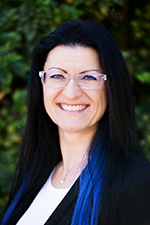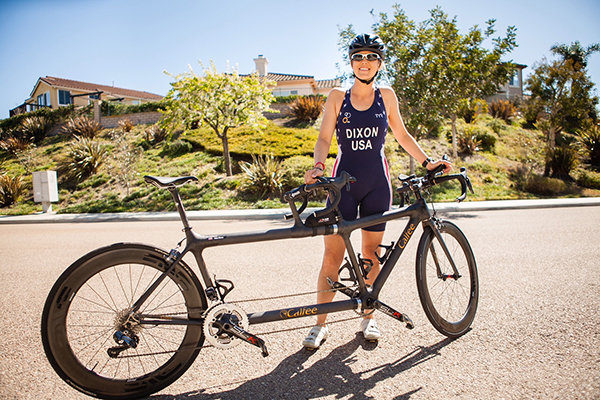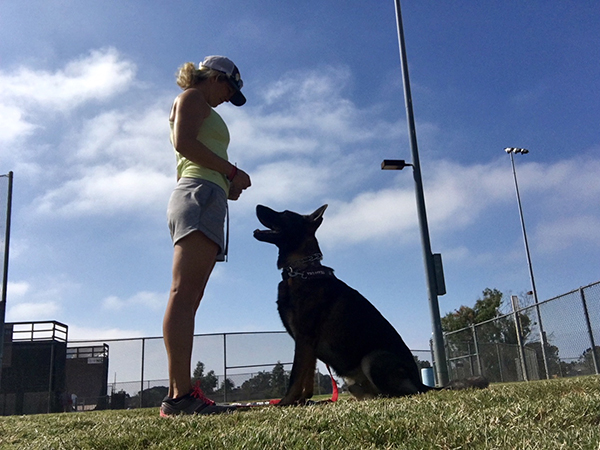


Amy Dixon is an expert patient advocate, elite paratriathlete, and motivational speaker. Originally from Connecticut she now resides in Encinitas, California, and is currently training and racing to make the US Team for the Paralympics 2020 in Tokyo.
Amy is ranked #5 in the world of Paratriathlon as a visually impaired female. She is a 2016 USA Parathriathlon National Team Member and current ITU Aquathon World Champion.

Amy lost 98% of her sight due to a rare type of Uveitis after a successful, 20-year career as a certified Wine Specialist, wine expert, and educator. Amy is the Vice President of Glaucoma Eyes International Organization and a sought-after speaker and patient advocate. She is coaching and mentoring many VI athletes, eye disease, and autoimmune patients, and she is the founder of Camp No Sight No Limits, a camp for blind triathletes.
Amy is a powerhouse and her schedule is packed. Thank you for taking the time to sit down with me for this interview.
Q: Do you make New Year's resolutions? If yes, what are they?
Amy: I try not to. Every year has exceeded my expectations, and it's usually NOT exactly what I had hoped or wished for.
Q: What is your next big goal?
Amy: To inspire the next future blind Paralympic hopeful.
Q: Do you mind being called an inspiration?
Amy: Honestly, I don't. I think that if someone sees my ability to overcome life's obstacles as inspirational, and they go and do the same for themselves, then I am happy and proud.
Q: What or who inspires you? What keeps you going?
Amy: My teammates. Especially the military veterans who have not only survived tragedy, and seen terrible things in combat, but who continue to serve their country in a different way, now wearing the Stars and Stripes. When I feel like I can't survive yet another surgery or a workout is just too daunting to tackle, I think of them putting themselves out there each and every day and pushing through, and it forces me to do the same.
Q: What has your experience taught you in dealing with doctors and the medical community?
Amy: Communication and relationships are paramount. Your doctor needs to buy in to "Team Amy" or "Team Brian". He or she needs to be your ally in tackling disease and living a full life AROUND your illness. Manage the patient first, disease second. Quality of life is so important when dealing with long term or chronic illness. Knowing that your doctor wants to keep you 'in the game', whatever that is to you, is vital to having successful outcomes as a patient, and encourages patients to remain compliant with their meds and their post-surgical care.
Q: What would you like to tell the optical community in general in regard to interacting with VI patients?
Amy: Always address the PERSON first and NOT their guide dog if they have one. It is rude and also obtrusive and sometimes dangerous for the patient. Be sure to educate your staff on courtesy with guide dogs. No petting; and making ANY sort of distraction to the dog can really unsettle an already nervous patient.
Be CLEAR in your instructions to a VI patient. For instance- the chair is two feet in front of you, at the two o'clock position. Offer more light to help them acclimate in a dark exam room. Keep noises to a minimum so they can fully orient themselves in procedure or exam rooms. TELL the person when your hand is outstretched to shake theirs.
Be explicit when examining a patient who is VI. Tell them before you touch them; for instance, "I am going to reach out and hold your upper lid open for you. Is that ok?"
All of these things are very helpful to a VI patient. Also, remember that many times a VI patient doesn't keep appointments because transportation may be an incredible challenge for them. Be flexible with timing their appointments. Always ask them how they are getting there and if there is anything you can do to help them arrange transit for surgeries, procedures, etc. That will go very far in establishing rapport and will remove major obstacles to good follow up care for VI patients.
Q: What would you like to say to the general public in regard to interacting with VI people?
Amy: Have a question? ASK us. Whispering is rude, and yes, we generally have more attuned hearing than fully sighted people, so we can hear your comments. Address a VI person first, and never distract their dog by calling to it, or extending your hand out to greet it, unless you have been given explicit permission by the handler.
Be helpful. Transportation is a huge obstacle for the VI community. Offer a ride if you're going their way or perhaps a shared grocery trip. Help them network in their community to establish transit to work, family, social visits, doctors, school or errands. The public needs to know that while blindness seems daunting, people with vision loss can do everything that sighted people can do thanks to technology. They hold every kind of career possible, can remain independent, and one day will be able to drive cars again thanks to advances in technology.
Q: What is your pet peeve?
Amy: When people are surprised that I'm an athlete. And when people talk to my dog without addressing me first.
Q: What are your thoughts on "fake" service dogs?
Amy: There needs to be a legal certification process to "vet" all service dog applications. You need a license to drive a car. You should be required one to get the use of a service dog. I don't care if it's expensive. Adaptive equipment is. It should be cost prohibitive to the general public, and HUGE fines must be enforced if someone is breaking the law. Also, an emotional support animal DOES NOT have the right to be in public. Only in housing and on certain aircraft IF well behaved and properly trained. They do not have the right to go into a grocery store or pharmacy. Most are poorly socialized and try to attack my guide dog. They are a danger to me and my guide on a daily basis. Businesses must no longer be afraid to require them to leave and should be empowered to require proof of such an animal as a service animal.
Q: What is the one thing you wouldn't want to be without?
Amy: My iPhone. It is my ability to communicate with the world in a way that is accessible to me and thousands of VI persons. Also, my guide dog. He saves my life from hybrid vehicles on a weekly basis and keeps me from smashing into poles constantly. I am grateful to have him for my safety, but mostly my comic relief while transitioning into life as a blind person.

Back to: January 2018 : January 2018 Newsletter